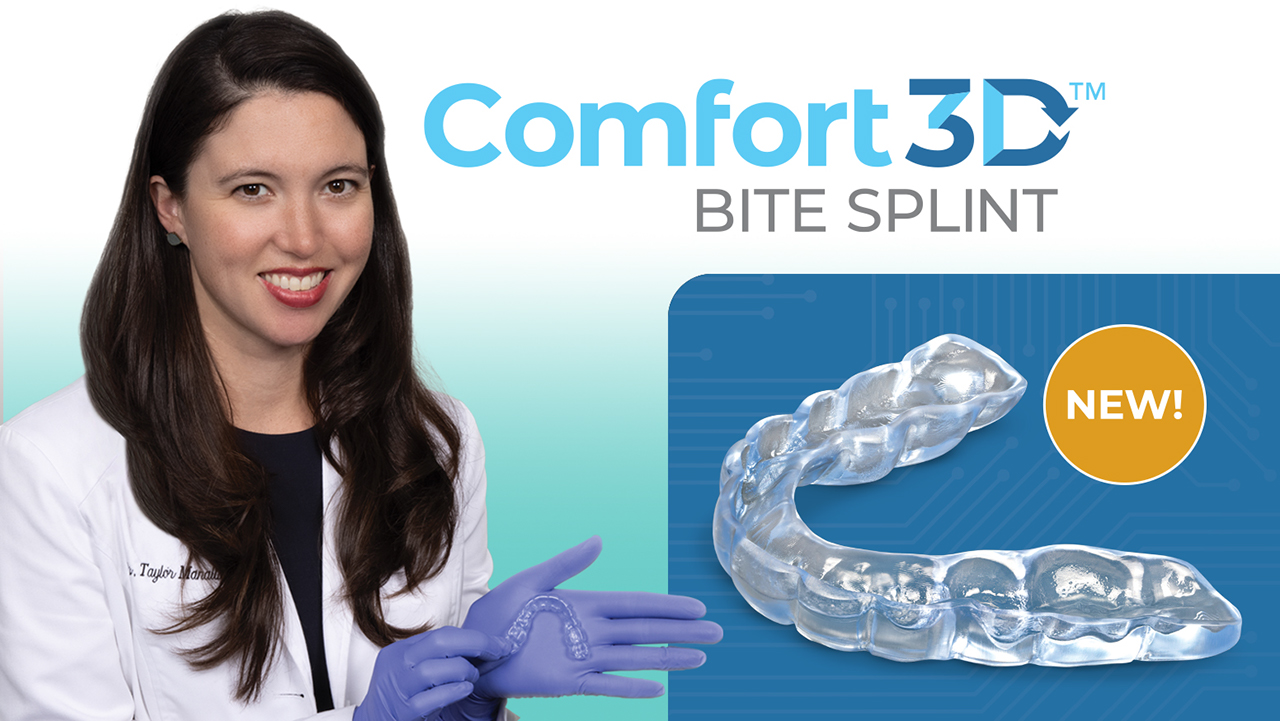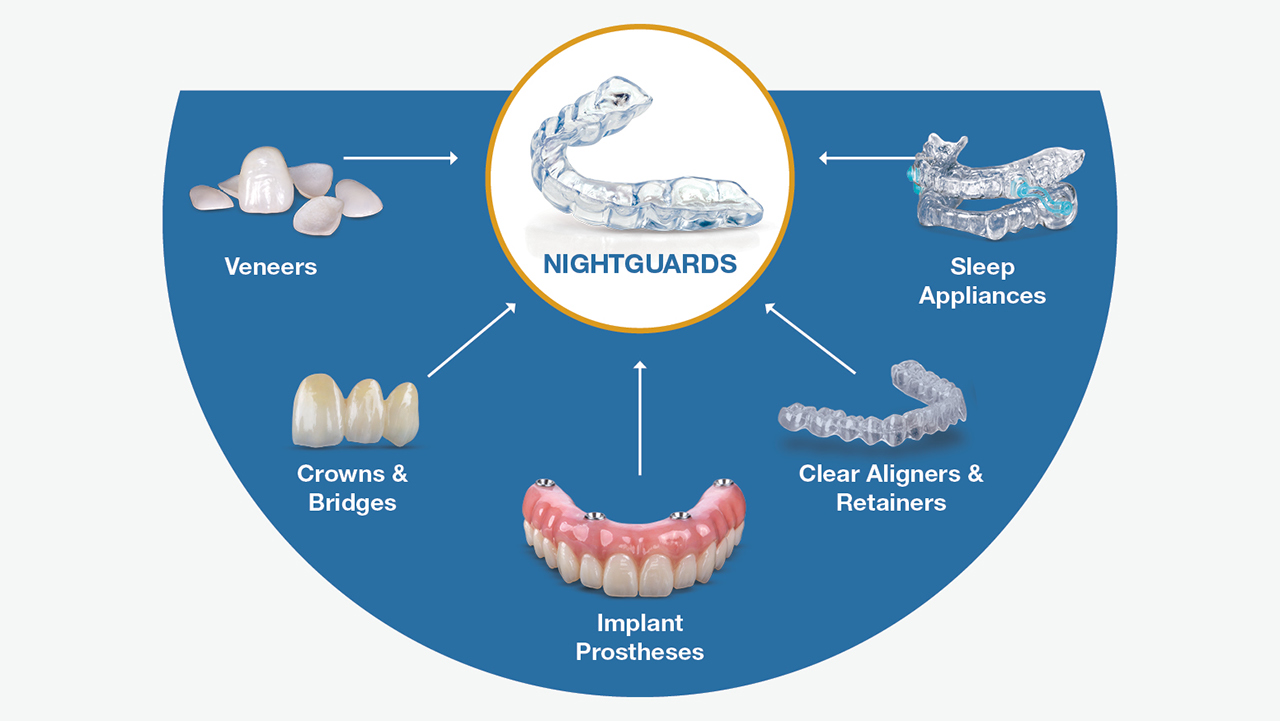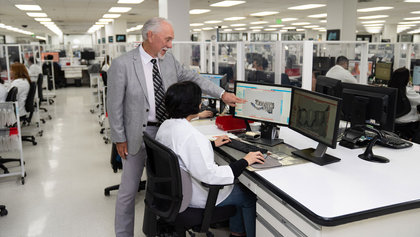The bite splint is a dental appliance that receives little attention when compared to the number of benefits it offers to both dentists and their patients. Occlusal guards like the new Comfort3D™ Bite Splint, which was launched by Glidewell in November 2020, can be a profitable practice builder for dentists, while also serving as a more financially beneficial option for patients who want to avoid paying more for restorative work in the future.
But the benefits of the Comfort3D Bite Splint go beyond profitability: As a digitally designed, 3D-printed bite splint, it offers optimal fit and retention, as well as more tongue space for better patient comfort than is typical for standard occlusal appliances.
Prosthodontists, periodontists and general practitioners alike are discovering the benefits of implementing bite splint therapy into their practices. Ultimately, when patients present with clear signs of damage caused by bruxing or clenching, it is the practitioner’s responsibility to treat them. Allowing patients to continue to wear down, chip or crack their teeth until they need extensive restorative work can be seen as treatment negligence.
As more and more practices begin to implement occlusal guards into their treatment options, certain questions about bite splints are more commonplace. The following collection of FAQs is designed to help practitioners better understand how nightguards, like the Comfort3D Bite Splint, can benefit patients and the dental practice.
Will COVID-19 affect how clinicians prescribe bite splints?
According to the American Dental Association, dentists nationwide have reported a growing prevalence of bruxism, chipped and cracked teeth, and TMD symptoms among their patients,1 making bite splints and nightguards more necessary than ever. The COVID-19 pandemic has greatly impacted the stress levels of patients and the day-to-day practice schedules of dentists. One way to mitigate these changes is to offer patients a convenient entryway to treatment via the Glidewell™ Self-Impression Kit, an impression kit that patients can complete themselves in the comfort of their own homes. In tandem with these easy-to-use kits, clinicians can then prescribe custom bite splints and nightguards that will mitigate the effects of bruxing and clenching caused by stress.
Which patients need a nightguard?
Almost all patients, even those with healthy dentition, can benefit from wearing a nightguard like the Comfort3D Bite Splint. Clinicians can determine which of their patients need a bite splint by looking for identifying factors such as the following:
- Parafunctional habits like bruxing or clenching
- Cracked or chipped teeth that resulted from bruxing or clenching
- Patients seeking to protect their dental restorations or prevent damage to their healthy dentition
Do clinicians normally prescribe a nightguard for patients who receive veneers or anterior crown & bridge restorations?
Nightguards, in addition to their preventive characteristics, are also ideal for protecting patients’ investments in cosmetic and restorative treatment, including veneers, crowns & bridges, and implant-supported restorations. In comparison to fixing restorative work that has been damaged by wear or bruxing, purchasing a bite splint is a relatively simple, low-cost solution that often follows similar treatment protocols to those of clear aligners, retainers and sleep appliances. Patients deserve to have a nightguard that protects their restorations from damage and thereby prevents undue expenses. Declining to do so could lead to treatment negligence.








